As an HOA board member, one of your overarching duties aside from ensuring that your community is a nice place to live for all residents is helping your board operate within its financial means. HOA and condominium association boards have a big responsibility to be frugal with spending, especially when it comes to big costs like labor and maintenance.
To cut down on those costs, some boards turn to volunteer labor from owners in the community as a way to not only save money but also build comradery in the neighborhood. While in a general sense it can seem like you’re killing two birds with one stone by utilizing volunteer labor, you may want to take a second look. It might save you money now, but the potential risk could be far more expensive in the long run.
Even though you may have the best of intentions by turning to volunteer labor in your community, it could turn into an ugly situation if one of your volunteers becomes hurt in the process or a homeowner’s property is damaged accidentally.
Why Volunteer Labor Can be Risky Business
When your HOA hires a licensed contractor for labor or maintenance jobs in your community, those workers are covered under their business insurance policy in the case of injury or accidental damage. Volunteer workers, however, aren’t usually automatically covered by any type of insurance policy which means they could technically sue the HOA for any injuries or damages incurred while working.
We’ll paint a couple scenarios for you:
- Your HOA Board organizes a community cleanup day to spruce up the common areas in the neighborhood with the help of volunteers. A nice, middle-aged man volunteers to trim some low-hanging branches on a tree while on a ladder. He accidentally falls, sustains a serious head injury, and requires weeks of hospitalization. To cover the medical bills and financial loss he sustained in the fall, he sues your HOA for tens of thousands of dollars.
- The Board appointed a volunteer committee to help with yard maintenance in the community areas of the neighborhood. A well-intentioned volunteer who was mowing a community lawn accidentally passed over a rock which shattered the window of an adjacent home and injured the person inside. The injured person files a lawsuit for medical bills and for the damaged property.
Ok, we know that these types of scenarios aren’t particularly common. But similar circumstances can happen, and they have happened before to other HOA or condominium associations. It’s in the best interest of your entire community to plan ahead now to prevent these types of scenarios from ever happening in the first place.
HOA Insurance and Volunteer Labor
Boards can never just assume that someone won’t sue them in the case of an injury or accident, which is why having appropriate HOA insurance or condominium association insurance for volunteer labor is important to consider.
In general, there are three types of insurance that could potentially apply to volunteer workers. These are:
- General Liability – This policy typically covers damages that are a result of negligence (i.e. a volunteer falls off of the association’s ladder that was broken). This is definitely not a comprehensive policy, though, as many potential accidents wouldn’t fall under the category of negligence.
- Workers’ Compensation – In some states, this type of policy could cover volunteers under the direction of the HOA as workers. But certain carriers may still place restrictions on who can be considered a volunteer worker.
- Special Volunteer Policies – Standalone policies do exist to cover volunteers in your community. Although they are an added yearly cost, it may be a good option for some boards.
Even if you do have an HOA insurance policy in place that you believe covers volunteer labor, it’s still a good idea to comb through the details to make sure you’re protected. Here are a handful of things to consider:
- Volunteers May Not Be Covered – If your HOA currently has a workers’ compensation policy in place, you may be surprised to find out that it may not cover volunteer labor. While some may allow for coverage of volunteers, the fine print might state that they have to be officially appointed by the board to act as a volunteer.
- There’s a Process to Getting Volunteers Covered – If a particular HOA insurance carrier does allow for volunteer coverage, there’s typically a three-step process involved to actually putting that in place. First, the board must pass a resolution for this coverage. Then, the association needs to purchase coverage from that carrier that extends coverage to volunteers. And finally, the volunteers must be specifically appointed by the board to a committee, which needs to be documented in writing (usually within the meeting minutes).
- What if Volunteers Just Show Up? – Let’s say your HOA plans a community clean-up day, but more people show up than who initially signed up to help, and those individuals haven’t been formally appointed by the board. Would they be covered? That all depends on how your HOA insurance carrier defines volunteers, and it’s worth considering what exposure exists if the board and the community manager allow these individuals to work.
- Consider Potential Conflicts – If specifically appointed volunteers are actually covered under your policy, you need to consider what potential conflicts could arise if there are homeowners in your neighborhood who are excellent volunteers but terrible at paying bills. Will your board still appoint a willing volunteer who is past due on their monthly HOA fees?
- Where Do You Draw the Line? – When you ask for volunteer help, there will inevitably always be people who are willing to contribute their time. But how do you determine who is qualified to do the tasks that you need help with, especially if they require a greater skill set? Or how do you determine is healthy enough to perform certain tasks without a risk of injury?
Making the Decision
Every HOA and condominium association is different, and each one has a different budget. There’s really no right or wrong answer when it comes to choosing whether or not to utilize volunteer labor. The only wrong move you can make is not doing your due diligence as a board to ensure that you’re protected.
Some boards may decide the risk of volunteer labor simply isn’t worth the hassle and added cost of the necessary insurance. Other boards may find that the savings with volunteer labor is still effective even with the costs of added insurance policies. If your board doesn’t fall into either of those categories and still wants to utilize volunteer labor, at least make sure you have volunteer workers sign a waiver that protects the HOA in the case of any injury or damages.
We hope this post has helped you take a closer look at volunteer labor in your HOA and determine if it’s the right move for your community. Still have questions about HOA insurance coverage for volunteer workers? Blue Lime can help you find a policy that’s right for you. Contact us today to learn more.





